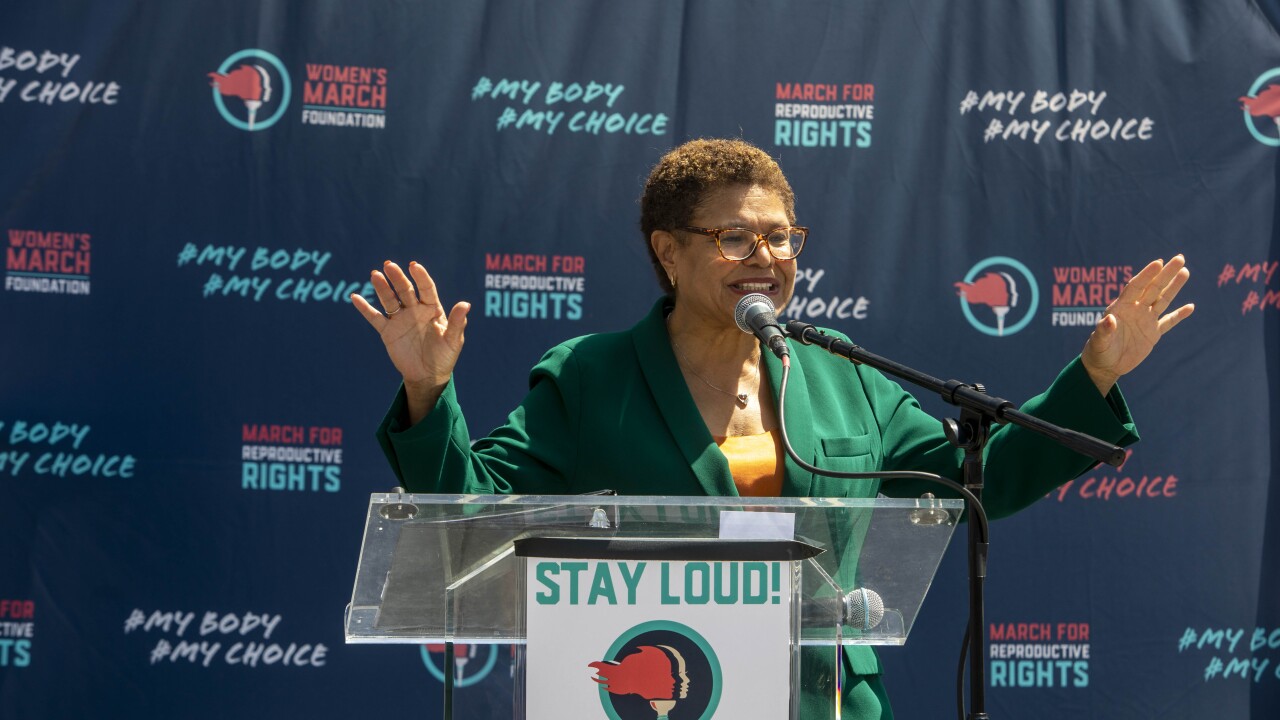JACKSON, Miss. — Lt. Gov. Tate Reeves unveiled Monday what he described as a comprehensive six-year plan to spend $1.17 billion in new money on infrastructure needs throughout the state.
Reeves' Building Roads, Improving Development, Growing the Economy (BRIDGE Act) passed the Senate Finance Committee after about three hours of discussions late Monday and must be taken up before the full Senate by Wednesday to remain alive in the process.

Many of the Democrats on the committee say the plan does not fix what many agree is a deteriorating state and local government transportation system.
"The BRIDGE Act addresses the needs of our state without raising anybody's taxes," said Reeves in a statement. "...We developed a responsible plan that balances the needs of our local governments and the marketplace."
The plan provides $150 million in bonds (issuing long-term debt) to address immediate needs. Of that $150 million, $40 million is for designated projects (more than half are located in the Jackson metro area) and $60 million is for an existing program that provides state funds to counties to repair substandard bridges. The Legislature traditionally provides $20 million annually for the bridge program, but did not provide any funds during the 2017 session.
The bill includes a little less than $1 million in new tax revenue from a yearly assessment on electric and hybrid vehicles.
The rest of the funds in the plan are diverted from sources of revenue that in the past have gone toward funding other agencies, such as education, health care and law enforcement.
About $600 million of funds diverted to transportation would come from the 2 percent of anticipated revenue set aside that the Legislature is legally required not to spend to avoid cuts if revenue does not meet projections. In seven of the past eight sessions, the Legislature has passed laws waiving the 2 percent and opted to spend those funds on education, health care and law enforcement.
Under the Reeves proposal, those funds will no longer be available for anything other than transportation. And if revenue collections do not meet projections, as often has been the case in recent years, the funds might not be available at all.
Reeves also counts in the total funds in the bill $125 million he proposes to divert from the Department of Transportation over fives years to a new transportation program controlled by the governor.
Sens. David Blount, D-Jackson, and Hob Bryan, D-Amory, said a 300 page bill should not be unveiled on a Monday with the goal of passing it on the Senate floor by Wednesday.
"This is not the way the legislative process is supposed to work...," Blount said. "And this bill is not nearly as significant as proponents make it out to be. This bill is more about press releases than passing significant legislation."
About 90 minutes before the bill was taken up in committee, Reeves unveiled the proposal Monday on busy Lakeland Drive in Jackson next to the Pearl River with heavy road equipment from an ongoing project in the background. Senate Finance Chairman Joey Fillingane, R-Sumrall, and Transportation Chairman Willie Simmons, D-Cleveland, the co-authors of the legislation, also attended the news conference.
In addition to providing funds for roads and bridges, it also would provide matching funds for water and sewer needs, for rail needs and for substandard dams, both on public and private land.
Besides taking funds from the Department of Transportation, the bill also would give the governor veto authority over some of the agency's operations. The agency is governed by an elected commission.
Various groups, including the influential Mississippi Economic Council, have been advocating for additional funds for transportation for years. They say the state's 18.4-cent per gallon motor fuel tax no longer provides the revenue needed to address infrastructure needs. MEC President Scott Waller, who attended the news conference, said he is glad to see the proposal, but stopped short of endorsing it until his group had more time to study it.
This is the Senate leadership's first plan to address the issue. Through the years, the House has passed multiple smaller proposals -- also diverting funds from other agencies. Those bills died in the Senate. Legislative leaders in both chambers have not been willing to advocate for tax increases to deal with the issue.
Of the Senate proposal, House Transportation Chairman Charles Busby, R-Pascagoula, said he had not read it yet, but added, "I hope it's something we can work with. I'm not going to slam the door on anything."





